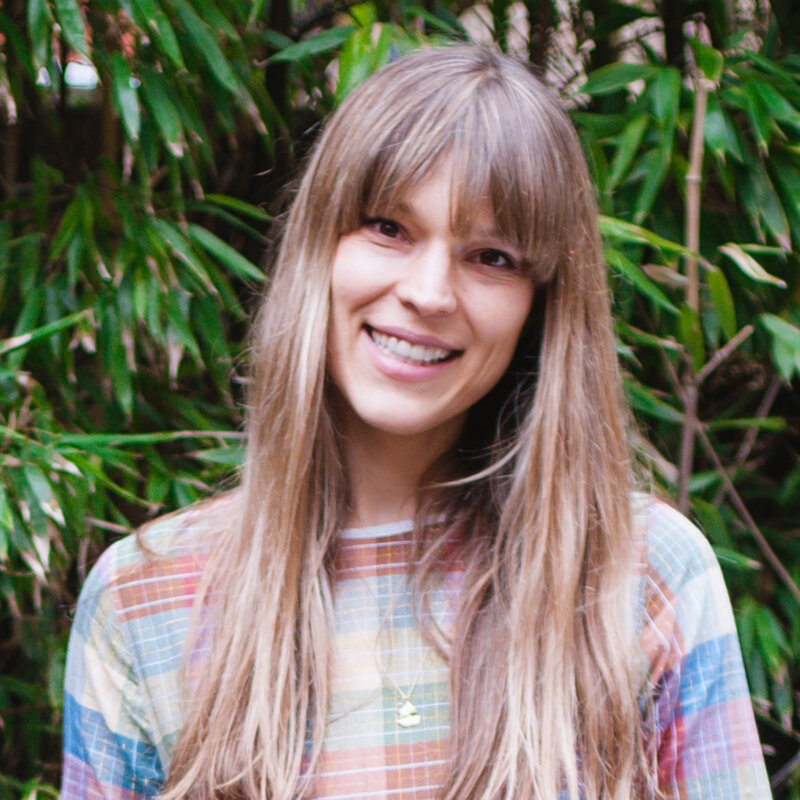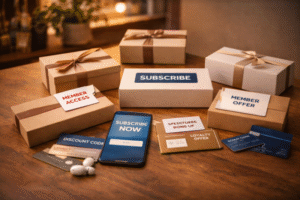Maya Simler was born in Belgrade. As a child she lived in Iran and Russia. When she was a teenager she took a diving course and saw for herself the amount of plastic on the sea bed. It was shocking, and made her vow to do something positive to combat waste. She came to London and completed a BA in Visual Communications and an MA in Scenography at Central St Martins. After teaching at the American University in London, she founded an interior design company, had children and, after being taken aback at the waste generated at the parties they attended, set up ethical, educational, chocolate brand PLAYin CHOC. Here she tells us about her inspirational entrepreneurship journey.
Can you tell us a little about your background and the company?
I’m Maya, originally from Belgrade. As a child I lived in Iran and Russia, before coming to London to complete a BA in Visual Communications and an MA in Scenography. I taught at the American University in London and founded an interior design company. After having children I combined my three passions – design, caring for the planet and chocolate – and founded PLAYin CHOC.
We are based in North London, and I come up with the concepts and designs for the brand. PLAYin CHOC is best known for its colourful, fun, stylish ToyChoc boxes. Each box contains a collectable push-together toy animal, fact card and two delicious pieces of chocolate. All our packaging is recycled, recyclable and home-compostable, the chocolate is vegan and allergen-free, and the entire production chain is fair and slave labour-free.
We provide an alternative to traditional chocolate-and-plastic-toy products that’s ethical, fun and educational. We aim to have our products stocked on shelves worldwide as an affordable, feel-good treat, and that we can help preserve our planet for the next generation (as well as enjoying the very best chocolate).
How did the idea come to you for the company?
When I became a mum, I was shocked by the amount of plastic and sugary chocolate given away in goodie bags at children’s parties, and was motivated to set up PLAYin CHOC. I had already – through a lot of trial and error in my kitchen – perfected a three-ingredient chocolate recipe. My family are lactose-intolerant, so it just happened to be vegan and allergen-free too! In addition, I had a background in education; I was a lecturer at the American University in London and I enjoy educating kids in a light, playful way – through games and toys – they’re learning, but barely notice it.
I have a background in design, so I could also take care of the packaging and collectable toys, theming them around wild creatures and dinosaurs. I’m proud of my bold, colourful designs that are realised in vegetable, eco-friendly inks on recycled, recyclable packaging. So when these three factors combined it was the lightbulb moment! I had made delicious chocolate that was allergen-free; I loved education, and I can make things look stylish and appealing. We ran some figures and realised that there was a market for this. We looked at how much money someone like Kinder were making, and realised that it could be a viable, successful business. But it developed so organically.
How did you achieve awareness?
I knew my idea was good – I am my target customer – but I still had to persuade others. I took my chocolate and products around trade fairs. Instantly, people’s reactions were incredible; they couldn’t believe it had less sugar than standard brands and was vegan. Many told us that they couldn’t believe no-one had come up with the idea before. Now they had a product that not only tasted great, but didn’t pollute the planet, was healthier, had fewer allergens and made their kids happy! Everyone was a winner.
This drove me to expand the company, and I established strong relationships with a wide variety of retailers worldwide. It felt as if I was spearheading a new wave of female chocolate makers. The industry had been very male-dominated, and really focussed on artisan, small-scale production, but I wanted to make ethical, but mass-market products. To create something that would sit alongside huge brands on the shelves, that many parents and kids had access to and could feel positive about buying. And I feel as if I’m a long way along on that journey.
How have you been able to gain funding and grow?
We launched to trade in 2018 with our first range of 18 endangered animals. We took this to over 30 shows in 2018 mostly in the gifting market. In 2019 we took what we had learned from this experience and market feedback and developed new packaging, new ranges and price points and this was ready in the last quarter of 2019. By this time, we had established relationships with airlines (Norwegian) Ocado, John Lewis and others.
We fitted out a new factory in late 2019 and, while staff were on furlough, invested heavily in automation during the pandemic. We have also invested heavily in product and brand development. Profitability is not far off now and we have a great foundation to grow from this year. With 20 staff – mostly in the factory – and sales growing rapidly from around 1m run rate we are targeting over 3m for forthcoming financial year May 22 to end April 23. To date we have over 500 investors from two rounds of crowdfunding on Crowdcube, who have invested on those and private funding rounds totalling approx 2m GBP.
In March 2020 lockdown happened, everything changed and we had to focus our efforts online as airlines and non essential retail was shut. We managed to still double our turnover each year in 2020 and 2021 and with the end of Covid restrictions coming towards the end of 21 and early 22 we can now refocus back on airlines and travel, supermarket listings, distributors into independent food shops, with less emphasis online although that remains a good route to market.
We are a rapidly expanding company; our worldwide network of stockists gets bigger every week (we are now in Ocado), and I now manage a team of experienced, passionate people, as well as being a mother. Two rounds of crowdfunding have meant that we can scale up production, and we are aiming to appear on more shelves, at lower prices very soon; it’s important to me that as many families have the choice to buy our fun, ethical, and very very tasty products!
What are the key successes?
I am constantly pushing the brand forward. We produce award-winning advent calendars, run a successful subscription service, and have expanded into adult-friendly ranges. We’ve just established a partnership with the RHS, who are giving away our boxes in their gardens this Easter. Our chocolate was enjoyed by guests at the Whitley Fund for Nature awards, and we’re part of Prince Charles’ Terra Carta programme. We are planning more collections – look out for our sea creatures bobbing up soon!
Our chocolate has now – incredibly – won more than 27 taste awards worldwide. The amazing response to our chocolate – many of our customers tell us it’s better than any they’ve tried before – is a daily inspiration. We have a close relationship with our customers, and pride ourselves on replying personally to every email.
We are now stocked in over 30 countries worldwide, in major stores as well as fiercely independent retailers. Many families tell us they’re overjoyed there’s an alternative to plastic-and-chocolate treats. The kids love them, and parents can buy them and feel good about that; they’re planet-friendly and ethically produced. It’s this response that fires me into the future.
What were/are the challenges and how have you overcome these?
There have been intense times on our pathway. I’m a perfectionist, and will not compromise my ethics. For example, I searched for a long time for a company who might produce a compostable chocolate wrapper, but couldn’t find one. So we set up our own factories in the UK. Lockdown impacted us, so we pivoted to selling online successfully.
More personally, for the first year-and-a-half, I was juggling motherhood and this career, which was a huge challenge. My husband is my business partner, but I was still working late into the night and fitting calls and emails around school pick-up and drop-off. Now the challenges have changed; I’m managing a team of people and our business is now across the globe. However, I’m still very hands-on!
I’m still learning how to manage the work and life balance, but now I know that if you do take 12 hours off, it’s not the end of the world; you can park your inbox and pick it up the next morning.
What are your plans now/for the future?
I might have set up my company on the kitchen table, but it’s now an international success story, however, it still retains its radical, colourful roots. My journey has been eventful and involved a lot of problem solving and learning, as well as the realisation that my skills in design, creativity and – yes – chocolate making are the perfect combination for running a successful, ethical company.
We are planning a new range featuring sea creatures, and are continuing to expand rapidly across the globe. My ambition is that our products will be stocked on every supermarket, independent retailer and corner shop shelf, and that that volume of sales will allow us to offer an affordable alternative to those chocolates and toys with a heavier environmental footprint and more questionable ethics.
What would you like to share with others to encourage them to start their own entrepreneurship journey?
I think it’s important to know that you can be a successful entrepreneur without compromising your ethics. I believe that if you are honest and stay true to your core beliefs, that will take you a long way. I’m passionate about food made using healthy organic ingredients. It is possible to create a brand that is not only financially successful, but also has a good relationship with nature. We can create products without pollution and without destroying habitats and animals. That’s what motivates me. Every day, we’re trying to make the world a better place, connecting to people who care about the environment, and educating kids, but in the most fun way possible. I am a perfectionist, which in this context is what is needed. People often comment that our company ‘ticks all the boxes’ when it comes to ethics, and that’s because I won’t compromise. We are totally transparent, and there is nothing hidden.
Can you share you top tips for entrepreneurial success?
It’s important to learn how to delegate and put your trust in people. At the beginning, my business felt like my baby, my literal child. And I had to learn to detach a little, to trust good people who shared my values and work as a team. I learned what my strengths are, then found people to fill the other roles in the business who I liked and trusted. Now I know I can rely on them. But to begin with, doing that felt like the first time I left my child with someone else!
What are your favourite inspirational /motivational quotes?
“All you need is love. But a little chocolate now and then doesn’t hurt.” Charles M. Schulz
“Being good is good business.” Anita Roddick
What are your Instagram, Facebook and LinkedIn social handles and also website links so our readers can connect with you?
https://www.linkedin.com/in/maya-simler-878617/
TSF Reporters
The Successful Founder Magazine is the go to feature-rich magazine for founders on all stages of their entrepreneurship journey .
- TSF Reporters






